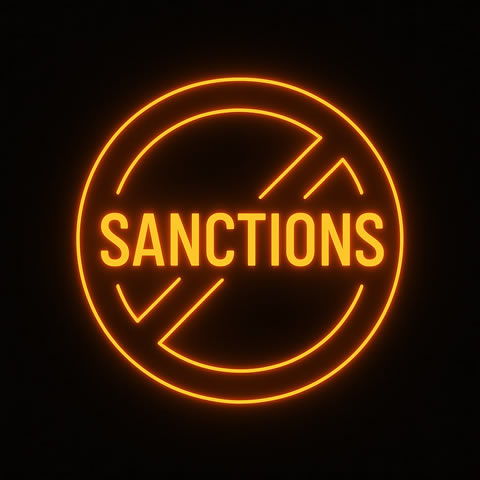08.04.2020
Advice on Self-Isolation During the Coronavirus Outbreak
In connection with the coronavirus, the government has taken a number of measures to restrict the rights of citizens and to introduce a self-isolation regime in various cities of Russia. BBNP clients faced serious difficulties in terms of satisfying these requirements and sought for daily legal support.
BBNP clients have experienced significant difficulties in terms of satisfying the requirements to work during the coronavirus pandemic and the high alert mode imposed in connection with it¹.
Strict requirements were imposed on organizations that were allowed to continue their activities, in respect of providing employees with personal protective equipment, maintaining a social distance between employees, and obtaining and extending passes for the period of self-isolation. It was necessary to issue orders on the number of employees who could not be transferred to remote work, and to send appropriate notices to the various inspection agencies.
BBNP clients need to consult on a daily basis and resolve constantly emerging issues in order to continue their business. Possible shutdown of the companies operations could result in serious property damage and problems in relations with counterparties. BBNP specialists were invited to minimize the said consequences and ensure the work under a legal status.
During the period of high alert, clarifications and changes to legal acts were made almost daily, and it was necessary to monitor them very quickly and efficiently and find legal solutions and mechanisms to continue operations.
Thus, some of the BBNP clients were able to continue their activities on the basis of the equipment delivery to the conveyor since it was impossible to stop it – going concern. Some clients included "essential goods" into their product range and thus were able to avoid suspension of operations and related losses. Some managed to establish remote sales and to continue their operations. Each of the described options required proper legal research and preparation of relevant orders, certificates and notices.
In addition, the business of a number of BBNP clients deals with several regions, which made it necessary to analyze the local legislation of the Samara Region, the Vladimir Region, the Yamalo-Nenets Autonomous District, etc. Many issues related to labor migration during quarantine restrictions and the dismissal of some personnel, as well as the organization of work using personal protective equipment of employees, depending on local legislation, were considered.
The issue of lease relations between the companies that suspended their operations during the high alert period and lessors was also sensitive².
In accordance with the provisions of the legislation, a lessee under real estate lease agreements was entitled to demand that the rent should be reduced for the period of 2020 due to inability to use the real estate as the high alert mode was introduced.
The said rules are extremely ambiguous and lessors who are not state-owned enterprises, have no direct obligation to provide a discount on rent for the period of restrictions imposed on the activities. Despite this, participation of BBNP lawyers in the negotiations and preparation of a legal position on this issue allowed to reduce, and in some cases cancel the rent for April – May 2020 for a number of clients, and this allowed them to move through a difficult period with minimum costs.
As a result of the operative actions of BBNP specialists, clients were able to maintain and continue their business activities during the hard period without serious losses, ensure the fulfillment of their obligations to counterparties and minimize current expenses.
__________________
¹ On 25 March 2020, the Decree No. 206 of the President of the Russian Federation was issued, according to which non-working days were announced from 30 March to 3 April 2020, with the retention of wages for employees. Further on, Decree No. 239 of the President dated 2 April 2020, extended the non-working days until 30 April, and Decree No. 294 dated 28 April 2020 extended them 8 May.
In addition, at the regional level, a number of resolutions and decrees were adopted regarding the introduction of a high alert mode, and further on, regarding the self-isolation of citizens and the suspension of the activities of enterprises and organizations. So in the territory of Moscow and the Moscow Region, the high alert mode was introduced by the Decree No. 12-УМ of the Mayor of Moscow dated 5 March 2020 and the Order No. 108-ПГ of the Governor of the Moscow Region dated 12 March 2020, respectively
² On 1 April 2020, Federal Law No. 98-FZ "On Amendments to Certain Legislative Acts of the Russian Federation on the Prevention and Elimination of Emergency Situations" entered into force, in accordance with paragraph 3 of Article 19 of which a lessee under real estate lease agreements was entitled to demand that the rent should be reduced for the period of 2020 due to inability to use the real estate due to the adoption by the government agencies of the constituent entities of the Russian Federation of a decision on the introduction of a high alert mode or an emergency situation on its territory (in accordance with Article 11 of Federal Law No. 68-FZ "On the Protection of the Population and Territories caused by Natural and Man-made Disasters" dated 21 December 1994)
Case Description
BBNP clients have experienced significant difficulties in terms of satisfying the requirements to work during the coronavirus pandemic and the high alert mode imposed in connection with it¹.
Strict requirements were imposed on organizations that were allowed to continue their activities, in respect of providing employees with personal protective equipment, maintaining a social distance between employees, and obtaining and extending passes for the period of self-isolation. It was necessary to issue orders on the number of employees who could not be transferred to remote work, and to send appropriate notices to the various inspection agencies.
BBNP clients need to consult on a daily basis and resolve constantly emerging issues in order to continue their business. Possible shutdown of the companies operations could result in serious property damage and problems in relations with counterparties. BBNP specialists were invited to minimize the said consequences and ensure the work under a legal status.
During the period of high alert, clarifications and changes to legal acts were made almost daily, and it was necessary to monitor them very quickly and efficiently and find legal solutions and mechanisms to continue operations.
Thus, some of the BBNP clients were able to continue their activities on the basis of the equipment delivery to the conveyor since it was impossible to stop it – going concern. Some clients included "essential goods" into their product range and thus were able to avoid suspension of operations and related losses. Some managed to establish remote sales and to continue their operations. Each of the described options required proper legal research and preparation of relevant orders, certificates and notices.
In addition, the business of a number of BBNP clients deals with several regions, which made it necessary to analyze the local legislation of the Samara Region, the Vladimir Region, the Yamalo-Nenets Autonomous District, etc. Many issues related to labor migration during quarantine restrictions and the dismissal of some personnel, as well as the organization of work using personal protective equipment of employees, depending on local legislation, were considered.
The issue of lease relations between the companies that suspended their operations during the high alert period and lessors was also sensitive².
In accordance with the provisions of the legislation, a lessee under real estate lease agreements was entitled to demand that the rent should be reduced for the period of 2020 due to inability to use the real estate as the high alert mode was introduced.
The said rules are extremely ambiguous and lessors who are not state-owned enterprises, have no direct obligation to provide a discount on rent for the period of restrictions imposed on the activities. Despite this, participation of BBNP lawyers in the negotiations and preparation of a legal position on this issue allowed to reduce, and in some cases cancel the rent for April – May 2020 for a number of clients, and this allowed them to move through a difficult period with minimum costs.
Result
As a result of the operative actions of BBNP specialists, clients were able to maintain and continue their business activities during the hard period without serious losses, ensure the fulfillment of their obligations to counterparties and minimize current expenses.
__________________
¹ On 25 March 2020, the Decree No. 206 of the President of the Russian Federation was issued, according to which non-working days were announced from 30 March to 3 April 2020, with the retention of wages for employees. Further on, Decree No. 239 of the President dated 2 April 2020, extended the non-working days until 30 April, and Decree No. 294 dated 28 April 2020 extended them 8 May.
In addition, at the regional level, a number of resolutions and decrees were adopted regarding the introduction of a high alert mode, and further on, regarding the self-isolation of citizens and the suspension of the activities of enterprises and organizations. So in the territory of Moscow and the Moscow Region, the high alert mode was introduced by the Decree No. 12-УМ of the Mayor of Moscow dated 5 March 2020 and the Order No. 108-ПГ of the Governor of the Moscow Region dated 12 March 2020, respectively
² On 1 April 2020, Federal Law No. 98-FZ "On Amendments to Certain Legislative Acts of the Russian Federation on the Prevention and Elimination of Emergency Situations" entered into force, in accordance with paragraph 3 of Article 19 of which a lessee under real estate lease agreements was entitled to demand that the rent should be reduced for the period of 2020 due to inability to use the real estate due to the adoption by the government agencies of the constituent entities of the Russian Federation of a decision on the introduction of a high alert mode or an emergency situation on its territory (in accordance with Article 11 of Federal Law No. 68-FZ "On the Protection of the Population and Territories caused by Natural and Man-made Disasters" dated 21 December 1994)



